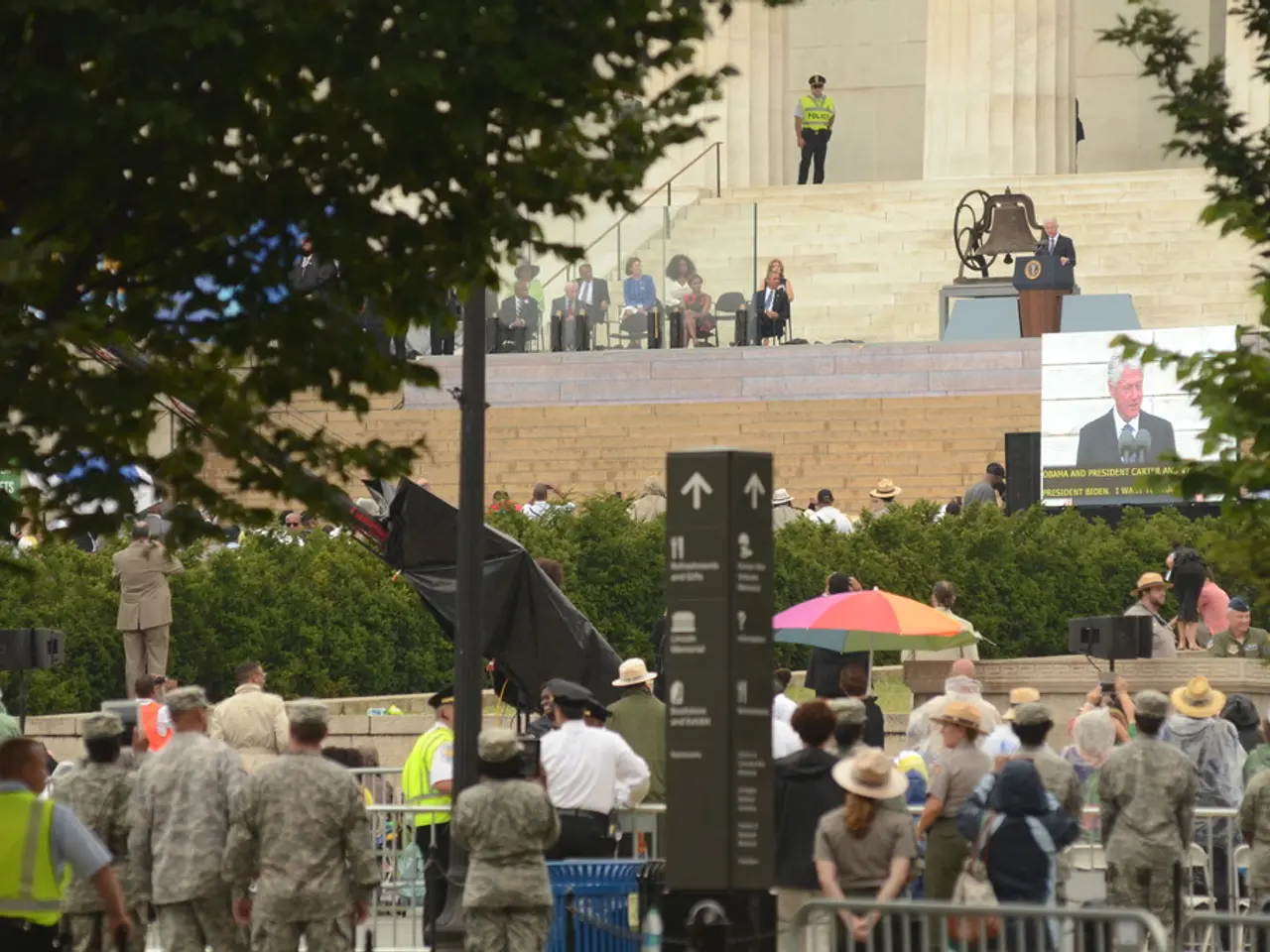Iran's supreme leader declares that disputes with the U.S. during Trump's presidency were irreconcilable
In the heart of the Middle East, Iran finds itself in a delicate and intricate situation, with the potential resumption of nuclear talks with the USA becoming a topic of heated discussion.
Ayatollah Ali Khamenei, Iran's Supreme Leader, has ruled out a political agreement with the US under President Trump, stating that the problems with him are insurmountable. Khamenei has claimed that the talk is now of obedience and surrender from Iran, a sentiment echoed in his assertion that any "disgusting demand" from the US will be met with firm resistance from the Iranian people.
President Massoud Peseschkian, however, has not ruled out continuing nuclear negotiations with the USA. This shift in stance, amid heated discussions, was initially unclear due to Peseschkian's absence, but recent statements suggest he and the reformers in Iran are not fundamentally against negotiations.
The hardliners in Iran's parliament, on the other hand, are strictly against resuming nuclear talks with the US. This division within the government reflects the broader political landscape in Iran, where reformers and hardliners hold opposing views on many issues.
The speculation surrounding Khamenei's whereabouts has been a topic of interest. He has rarely appeared in public since the Israeli attacks on strategic targets in Iran, leading to rumours that he had hidden in a bunker out of fear of an assassination attempt.
The Israeli attacks, which caused significant damage to large parts of Iran, including important nuclear and military facilities, have been met with a defiant response from Khamenei. He has claimed that Iran has defended itself "so dignified" during these attacks.
The government in Tehran is facing potential internal unrest due to energy and water shortages. These shortages, which have been exacerbated by the economic sanctions imposed on Iran, could lead to further instability within the country.
Observers suggest that Khamenei is not fundamentally against negotiations, but not under Trump's conditions. This stance is supported by the fear of another military strike by Israel if nuclear talks are not resumed. Trump has been accused of "inciting" Israel and supporting it in attacking Iran to force a political change.
If nuclear talks are not resumed, Iran faces potential sanctions that could further worsen its already dire economic situation. The economic situation of oil-rich Iran could be further worsened by these potential sanctions, potentially leading to a deepening crisis.
In this complex and volatile situation, the future of Iran and its relations with the USA remain uncertain. The resumption of nuclear talks could offer a path towards stability, but the road ahead is fraught with challenges.
Read also:
- ICE directed to enhance detention conditions following NYC immigrants' allegations of maltreatment
- Israeli finance minister issues warnings about potential annexation of West Bank territories
- United States faces rebuttal from South Africa over allegedly deceitful human rights report and assertions of land expropriation
- Accident at Rodalben Results in Injuries; Geoskop Area near Kusel Affected After Stormy Weather








